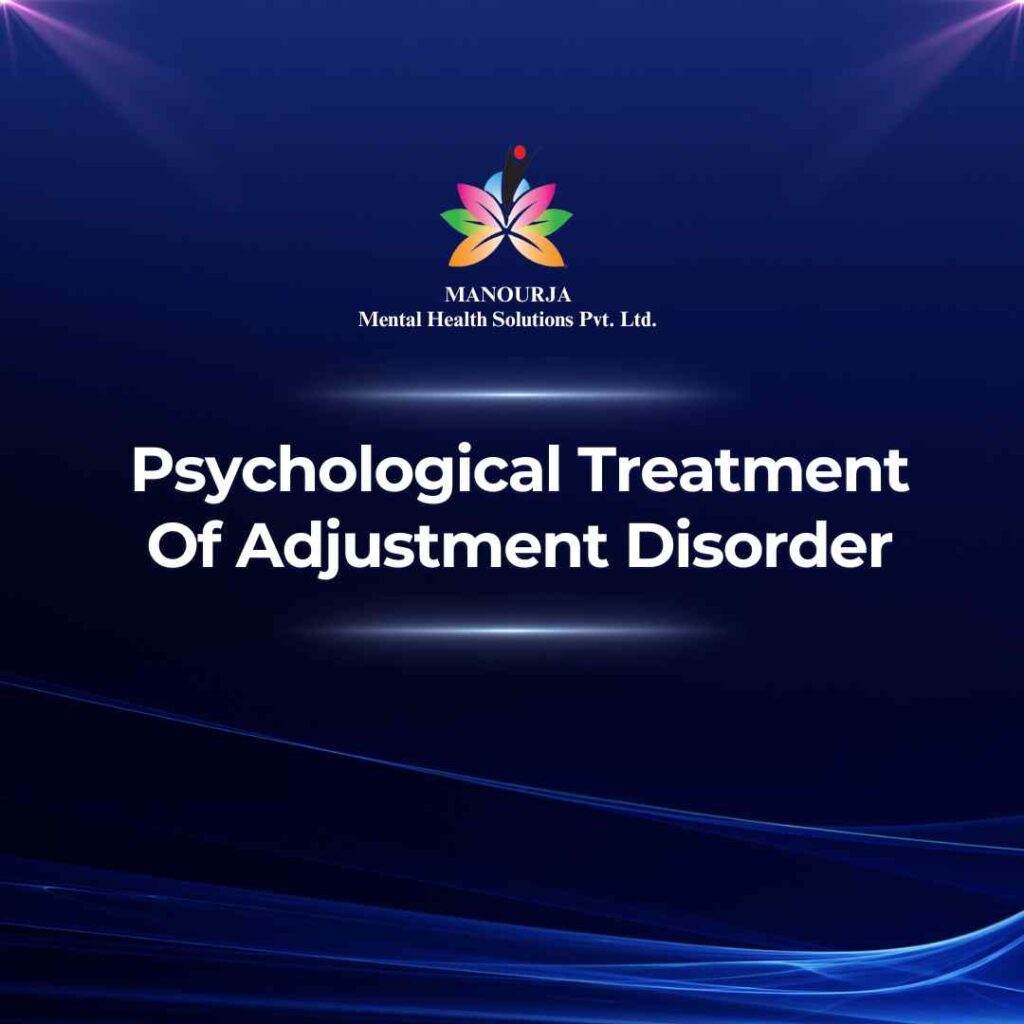Psychological Treatment of Adjustment Disorder

Psychological treatment is the cornerstone of managing adjustment disorder, focusing on helping individuals develop healthy coping mechanisms, resolve the psychological effects of the stressor, and improve overall emotional functioning. Here’s an overview of the most effective psychological treatments for adjustment disorder:
- Cognitive-Behavioral Therapy (CBT): CBT is one of the most widely used therapies for adjustment disorder. It focuses on identifying and changing negative thought patterns and behaviors that contribute to emotional distress. Through CBT, individuals learn practical skills for managing stress, addressing problematic thoughts, and altering behaviors that exacerbate the disorder. The therapy also helps in developing strategies to deal with future stressors more effectively.
- Interpersonal Therapy (IPT): IPT is particularly useful when adjustment disorder is triggered by changes in social roles or interpersonal conflicts. This therapy emphasizes resolving role disputes, transitioning to new roles, or improving relationship skills. IPT helps patients understand and navigate the interpersonal aspects of their lives that might be contributing to their stress and emotional pain.
- Supportive Psychotherapy: This therapy provides a supportive environment that encourages individuals to discuss their feelings and challenges. The therapist offers empathy, reassurance, and advice in a non-judgmental setting, helping the individual feel understood and supported. This can be particularly beneficial for those who have experienced a loss or are going through significant life changes.
- Group Therapy: Participating in group therapy allows individuals to meet others facing similar issues. It can reduce feelings of isolation and provide a support network. Group settings can also facilitate the sharing of coping strategies and offer a platform for receiving feedback about one’s experiences and behaviors in a safe environment.
- Family Therapy: Since family dynamics can often contribute to or be affected by adjustment disorder, involving family members in therapy can be beneficial. Family therapy helps to improve communication, resolve conflicts, and adjust family roles to support the individual dealing with adjustment disorder.
- Stress Management Techniques: Teaching effective stress management techniques is a key component of treatment for adjustment disorder. Techniques can include relaxation training, mindfulness meditation, deep breathing exercises, and progressive muscle relaxation. These tools help individuals manage their stress responses and can prevent future episodes of adjustment disorder.
- Crisis Intervention: In cases where the stressor is severe (such as sudden bereavement or traumatic experiences), immediate crisis intervention may be necessary to help stabilize the individual. This form of short-term therapy aims to provide immediate support and strategies to cope with the acute phase of the disorder.
Psychological treatments for adjustment disorder are aimed at both alleviating current symptoms and building long-term resilience. The choice of therapy often depends on the individual’s specific needs, the nature of the stressor, and the presence of other mental health conditions. Effective treatment typically involves a personalized approach that addresses the multifaceted nature of the individual’s response to stress.
At MANOURJA, we believe in the transformative power of counseling. Our experienced therapists offer a safe and supportive space where you can explore your thoughts, emotions, and challenges. Through personalized counselling sessions, we’ll work together to develop coping strategies, build resilience, and achieve lasting positive change. Discover the path to a healthier, happier you with MANOURJA counselling services.
MANOURJA Rehabilitation Services
At MANOURJA, we’re dedicated to helping you in rebuild your life, after difficult times. Our rehabilitation services focus on understanding what you need to move forward, whether you’re recovering from addiction, trauma, or any psychological – social challenges. We create personalized plans, that are all about helping you, regain your strength and find hope again. With a caring team by your side, you’ll have the support to make real progress and take steps toward a brighter, healthier future.
